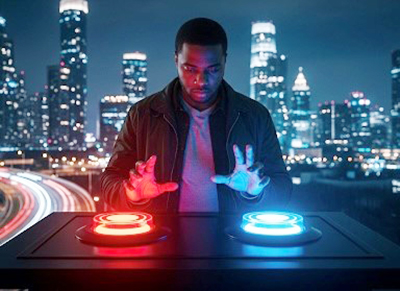
By Keshia Alphabet | For the Record
Let’s get this out the way:
We’re not confused.
We’re not conflicted.
We’re just tired of being cornered.
Globalist or patriot.
Liberal or conservative.
African American or foundational Black American.
Everywhere we turn, there’s another line being drawn—and somehow, we’re always expected to fall in line.
But what if none of these sides were built with us in mind?
A Nation Without a Nation
Black Americans are the only people on this soil who had to build an identity from scratch. Not borrowed, not inherited—built.
The people brought here during the transatlantic slave trade weren’t taken from nations—they were taken from kingdoms, cultures, and clans that no longer exist. Ghana wasn’t Ghana, and Nigeria wasn’t Nigeria. Those borders were drawn long after the ships had sailed. Colonial powers renamed the land at the Berlin Conference of 1884–85, erased tribal identities, and redrew maps to suit their empires. So when our ancestors arrived, there was no country to write home to—and no country that came looking for them. That’s why we didn’t just lose an identity—we had to make one from the wreckage.
Stripped of our original language, land, and lineage, we turned spirituals into blues, scraps into soul food, and trauma into culture.
No motherland to return to. No flag that’s fully ours. Just memory, survival, and whatever we could carry forward.
Even if descendants of American slaves return to Africa, it wouldn’t be a homecoming—it would be a new beginning. Because the places we were taken from no longer exist, and the names we carried were erased long before we could pass them down.
And still, we’re the only group expected to adopt the name of a continent instead of a country. “African American” is tidy, but it’s not precise. Nobody calls white folks “European American.” Nobody calls immigrants from Haiti, Jamaica, or Nigeria by the name of a continent. Just us.
Globalism Sounds Good—Until You Look Closer
Globalism markets itself as progress. A world without borders, where culture flows and humanity unites.
But let’s stop pretending this is neutral ground. Black Americans have barely been compensated, acknowledged, or protected within our own country. So being asked to fold ourselves into some broader global identity—without repair, without representation—isn’t elevation. That’s a path that promises progress, but ends up leaving us unseen.
Black Americans often fund movements we don’t benefit from, show up for communities that don’t return the favor, and lend culture to causes that never center our name. What looks like unity is often just unpaid labor.
The Patriotism Pitch Isn’t Better
The other side waves the flag, quotes scripture, and talks about values. But when it’s time to tell the truth about how this country was built, they turn the volume down. Patriotism expects silence from the ones who built the house but were never allowed to live in it.
We’ve served, fought, invented, and prayed over this country more than most. But every time we demand equity—not charity, not diversity points, just equity—we’re met with pushback or redirection.
If we’re going to talk patriotism, let’s talk receipts. And let’s talk repair.
DEI, LGBTQ+, and Immigration: Where Do We Fit?
Let’s ask the questions people avoid:
While we have stood in solidarity with these movements, what does it look like for that solidarity to be a two-way street?
Does DEI actually build generational wealth for Black Americans—or just reshuffle who gets a seat at the table for a year or two?
Does LGBTQ+ advocacy include healing the wounds in Black families caused by broken systems—or does it expect us to support it with no reflection on our specific history?
Does immigration reform come with accountability for how descendants of American slaves are still being locked out of homeownership, capital, and stability?
We’re not against anyone’s rights. We’re just asking who’s standing with us when the cameras are off. Because we’ve played support roles long enough.
A Necessary Conversation—Among Us
Some things we need to sort out in-house. This is one of them.
The label Black wasn’t created to honor us. It was used to group, reduce, and erase our nations of origin. But like we’ve done with so much else, we made it mean something more. We flipped it into pride, culture, excellence, and resistance.
Still, we have every right to ask if it still serves us.
Or if we’re ready to name ourselves, for ourselves.
Nobody volunteered for these labels. They were handed down like prison numbers—meant to sort, not to honor.
So now it’s our turn to ask:
What name tells the truth about us?
What do we want from each other?
What does solidarity look like when we stop asking permission?
We don’t have to prove anything to the world. But we should be asking real questions inside our community—questions only we can answer.
For the Record
We’ve marched for causes that forgot us. Fought battles that didn’t belong to us. Carried movements that didn’t protect us. And now we’re being asked to pick sides in wars that all sides found it easy to change our name, multiple times.
We’re not confused. We’re just paying attention.
And we’re long overdue for a conversation that centers our future—not as supporters, not as symbols, but as a people deciding our own direction.

